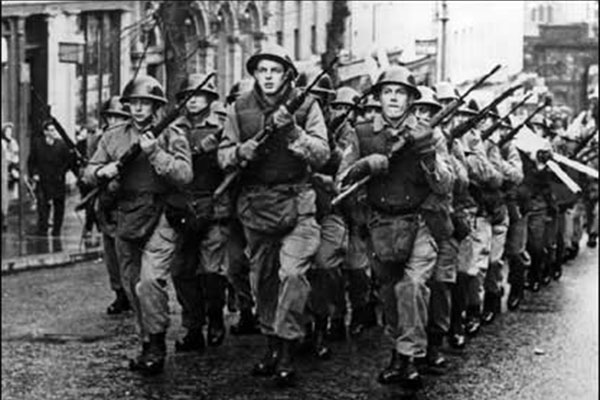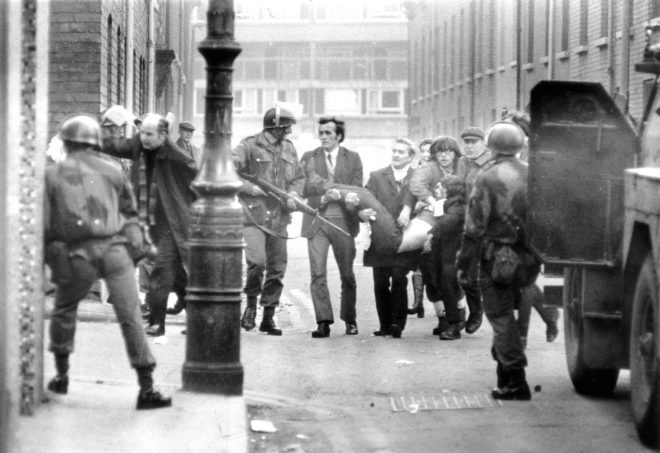
British soldiers on the streets of Derry in 1970
The Daily Telegraph and The Times report that legislation will be announced in the Queen’s Speech next Tuesday, May 11.
It has been reported that the move would also apply to former paramilitaries.
The Irish government said it “strongly advised” the UK not to take “unilateral action on sensitive issues”.
A UK government spokesperson said it had “clear objectives for addressing the legacy of the Troubles”.
It is understood the proposed legislation would see limits placed on prosecutions for offences committed before the signing of the 1998 Good Friday Agreement.
The reports were leaked on the eve of polling day for elections in England, Scotland and Wales.
SDLP leader Colum Eastwood said he plans to speak to the British and Irish governments later, adding the plan would over run the 2014 Stormont House Agreement, which included proposed measures to deal with the past.
He described the reported plans as “the biggest betrayal of victims by the British government” and said it would “put a huge obstacle in the way of true reconciliation”.
“It is the most shabby government I have ever come across, they are so cynical and so untrustworthy, I don’t think anybody would trust them,” Mr Eastwood told BBC Radio Foyle.
“Society needs to move on but on the basis of truth and justice.
“You cannot do it by hiding the past and this government is more concerned with backbench Tory MPs with military constituencies than actually looking after the victims of the past.”
He added the current government was “the most unprincipled and cynical” in many years.
Sinn Féin’s Michelle O’Neill said it was “another slap in the face” for victims.
The deputy first minister tweeted that it was “another cynical move that will put British forces beyond the law” and was “not acceptable”.
Ulster Unionist Party (UUP) MLA Doug Beattie said this was an amnesty for all.
“Everybody will get away with this. This is a line under the sand,” he said. He said the UUP was not in favour of an amnesty.
The legislation was also criticised by the Alliance Party leader, Naomi Long, who said on Twitter that the lack of communication on it “typifies the contempt with which Govt are treating victims”.
British Secretary of State Brandon Lewis met Irish Foreign Minister Simon Coveney on Wednesday in Dublin.
 A spokesman for his department confirmed that Mr Coveney was given no advance knowledge of any such proposal.
A spokesman for his department confirmed that Mr Coveney was given no advance knowledge of any such proposal.
In a statement, the Irish government added: “We reiterated that only through a collective approach can we deal with these issues comprehensively and fairly in a way that responds to the needs of victims, survivors and society as a whole.
“Victims and their families are the only priority.”
A UK government spokesperson added: “We want to deal with the past in a way that helps society in Northern Ireland to look forward rather than back.
“It is clear to all that the current system for dealing with the legacy of the Troubles is not working for anyone, failing to bring satisfactory outcomes for families, placing a heavy burden on the criminal justice system, and leaving society in Northern Ireland hamstrung by its past.”
Tags:




